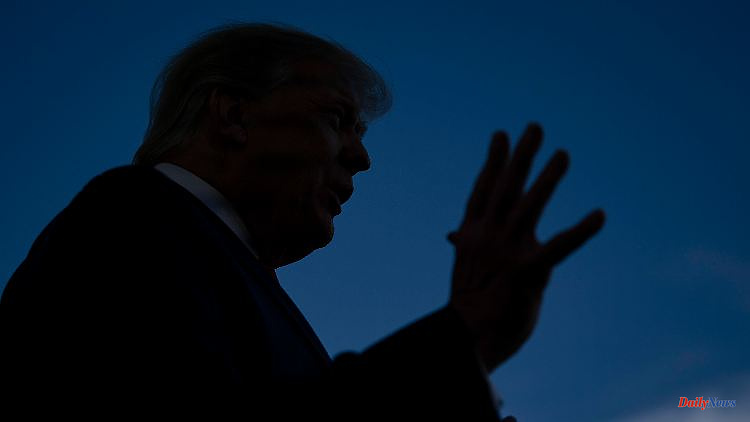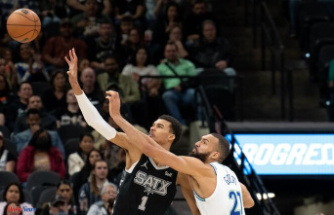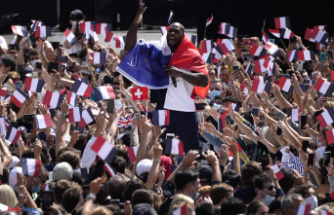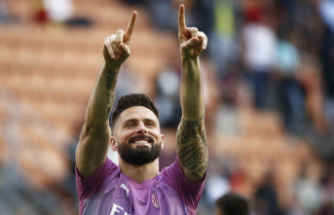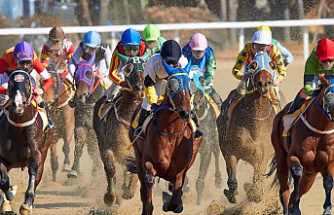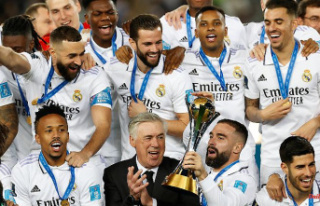The Super Bowl mega-event is torn apart: politics, entertainment and crime put football in the shade. Urgent human trafficking warnings circulate as Donald Trump rages. And religious fanatics already know who wins and who loses.
A Super Bowl isn't just a Super Bowl. Not just a football game. Sport, politics, entertainment, business - and crime come together in the largest single sporting event in the world. Everyone wants to capitalize on the hustle and bustle surrounding the endgame. Phoenix is bursting at the seams, there is no major topic in the US media these days (apart from the flying object shot out of the sky in Alaska). The duel between the Kansas City Chiefs and the Philadelphia Eagles is more and more accompanied by a dark shadow.
A few days before the game, the religious fanatics in cowboy hats on every sidewalk in Downtown Phoenix show just how charged a Super Bowl is, blaring their messages with full force into the faces of passers-by with their microphones. "No matter who you are for this weekend, you've already lost if you're not for Jesus Christ." The Jehovah's Witnesses stand quietly on the opposite street corner with a small stand selling brochures. During commercial breaks in TV broadcasts this year, the controversial "He Gets Us" campaign will tout Christianity, which has ties to the far right, homophobes and anti-abortion activists.
The throng of journalists in the media center on Thursday morning also shows how moving the Super Bowl is. What's going on, is Cristiano Ronaldo dropping by? No, pop star Rihanna appears for a small media round. Football? Here sport degenerates into a means to an end for pure entertainment. See and be seen. Rihanna turned down the NFL's invitation to sing at the Super Bowl in 2019 because she "didn't want to sell herself" and "didn't want to be a traitor." There were "things in this organization that I don't agree with at all," the pop star said at the time, referring to the racism in the league. It was about loyalty to Colin Kaepernick, the former San Francisco 49ers quarterback who was banned from the NFL after his kneeling pro-equality and anti-police violence protests against people of color in 2017.
The then presidential candidate Donald Trump had insulted Kaepernick in 2016 as a "son of a bitch". As disrespectful to the US flag and soldiers who died for it. As a traitor to the fatherland. Of course, the Republican won't be asked twice this year to cast his personal dark shadow over the Super Bowl - and the NFL final in the year before the presidential election becomes a political spectacle.
Trump shot the artist sharply on Truth Social on Thursday. The ex-president accuses Rihanna of having "no talent" and being "bad" at "everything". Known as a Trump critic, Rihanna is the world's second best-selling female musician of all time. Trump's attack comes after one of his staunchest supporters, Texas Republican Congressman Ronny Jackson, called for her to be removed from the Super Bowl halftime show for insulting Trump. Jackson dug up a 2020 Rihanna tweet on Twitter with pictures of a car with the words "Fuck Trump" spray-painted on it.
With Trump blustering at Rihanna, a left-wing star and, above all, a role model for many Black women, the Super Bowl has degenerated into right-wing vote-catching. In conservative Arizona, where Trump narrowly won in 2016 and narrowly lost in 2020, his message resonates with many. When the subject of politics is raised in Phoenix, hate speech against the "incompetent" government quickly begins. Some also admit that they still believe Trump was cheated in the 2020 election and actually won.
Rihanna herself has not yet responded to the former president's attack. However, she doesn't seem to have a problem with the NFL this year, although the race problem persists in the league, which is knee-deprived and still lacking in coaches and club owners of color. Although Kaepernick has not been allowed to play another professional game to this day. Whether she is a traitor or not remains unanswered. In the media panel, the Barbadian artist says her performance is for "representation for immigrants" and "for Black women everywhere."
But that's not all with the politics surrounding the football game in Phoenix. President Joe Biden is also heavily involved. A strange back and forth between the government and the Fox TV station these days ends with the Democrat not giving an interview to "Fox Soul", a small streaming platform aimed at black Americans. Biden actually wanted to be part of the traditional wave of talks before the game, but the White House said Fox had canceled the interview, while the conservative TV station blamed the president for the missed appointment.
Meanwhile, a much darker theme is omnipresent in Phoenix. Posters are posted in hotels, airports and traffic lights warning that "human trafficking" is happening in "our communities". The organization "It's a Penalty" is responsible for the tips, which also distributes telephone numbers on business cards in the event that "there is a suspicion that human trafficking is being carried out". Signs of this include people who carry several cell phones and hotel cards with them, show external signs of abuse, or who do not speak for themselves or only repeat answers they have learned by heart.
"It's a Penalty" states that major sporting events such as the Super Bowl are exploited by criminals for human trafficking because the large number of people in the area and the hotels make it easy to do so. According to the report, 14 children in hotels were identified as victims of human trafficking during the Super Bowl in Los Angeles last year. At the Super Bowl in Tampa the year before, there were 18 kids. The National Human Trafficking Assistance Hotline ranked Arizona 18th among states with human trafficking cases in 2022.
The international network ECPAT (End Child Prostitution, Child Pornography
The extent to which a Super Bowl actually facilitates human trafficking has not been thoroughly researched. Still, the NFL final seems unnecessary in just one case. It's A Penalty seeks to turn the tables on major sporting events as vehicles for global and local education and awareness campaigns. "In Arizona, the median age of sex trafficking victims is only 14, so we need to be part of the solution together," executive director Sarah de Carvalho said at a public meeting in January. "Only by working together can we prevent human trafficking and exploitation."
That's what the police are trying to do, too, and they're showing an enormous presence in the days leading up to the final. "The Phoenix Police Department has been preparing for the Super Bowl for almost 18 months," Sergeant Phil Krynsky told ntv.de. His agency has a unit that conducts proactive operations year-round to identify and assist victims of human trafficking. The Police Department has also partnered with 21 local, state and federal agencies, as well as health and human services providers in recent weeks for a joint operation that is expected to continue after the game.
"The influx of people around a major event leads to an increase in the demand for commercial sex," says Krynsky, explaining the potential dangers in Phoenix these days. However, law enforcement authorities have ways of "finding out and addressing those who may be victims of human trafficking - especially young people."
The Super Bowl isn't just a football game. Even journalists have been driven out of a public place by tense security forces because they are carrying a backpack. Not too bad. The religious clamor a few meters away again loudly. And the sun burns too much in the afternoon anyway - also because Trump's dark shadow does not yet reach every corner of the city in football fever.

